#Augie Hess
Text
How many of these "Top 100 Books to Read" have you read?
(633) 1984 - George Orwell
(616) The Great Gatsby - F. Scott Fitzgerald
(613) The Catcher In The Rye - J.D. Salinger
(573) Crime And Punishment - Fyodor Dostoyevsky
(550) Catch-22 - Joseph Heller
(549) The Adventures Of Tom And Huck - Series - Mark Twain
(538) Moby-Dick - Herman Melville
(534) One Hundred Years Of Solitude - Gabriel Garcia Marquez
(527) To Kill A Mockingbird - Harper Lee
(521) The Grapes Of Wrath - John Steinbeck
(521) Lolita - Vladimir Nabokov
(492) Pride And Prejudice - Jane Austen
(489) The Lord Of The Rings - Series - J.R.R. Tolkien
(488) Brave New World - Aldous Huxley
(480) Ulysses - James Joyce
(471) Jane Eyre - Charlotte Bronte
(459) Wuthering Heights - Emily Bronte
(398) The Brothers Karamazov - Fyodor Dostoyevsky
(396) Great Expectations - Charles Dickens
(395) To The Lighthouse - Virginia Woolf
(382) War And Peace - Leo Tolstoy
(382) The Sun Also Rises - Ernest Hemingway
(380) The Sound And The Fury - William Faulkner
(378) Alice's Adventures In Wonderland - Series - Lewis Carroll
(359) Frankenstein - Mary Wollstonecraft Shelley
(353) Heart Of Darkness - Joseph Conrad
(352) Middlemarch - George Eliot
(348) Animal Farm - George Orwell
(346) Don Quixote - Miguel de Cervantes Saavedra
(334) Slaughterhouse-Five - Kurt Vonnegut
(325) Les Misérables - Victor Hugo
(320) Harry Potter - Series - J.K. Rowling
(320) The Chronicles Of Narnia - Series - C.S. Lewis
(317) Anna Karenina - Leo Tolstoy
(308) Lord Of The Flies - William Golding
(306) Invisible Man - Ralph Ellison
(289) The Golden Bowl - Henry James
(276) Pale Fire - Vladimir Nabokov
(266) Gone With The Wind - Margaret Mitchell
(260) The Count Of Monte Cristo - Alexandre Dumas
(255) The Hitchhiker's Guide To The Galaxy - Series - Douglas Adams
(252) The Life And Opinions Of Tristram Shandy, Gentleman - Laurence Sterne
(244) Madame Bovary - Gustave Flaubert
(237) Vanity Fair - William Makepeace Thackery
(235) The Trial - Franz Kafka
(233) Absalom, Absalom! - William Faulkner
(232) The Call Of The Wild - Jack London
(232) Emma - Jane Austen
(229) Beloved - Toni Morrison
(228) Little Women - Louisa May Alcott
(224) A Passage To India - E.M. Forster
(215) Dune - Frank Herbert
(215) A Portrait Of The Artist As A Young Man - James Joyce
(212) The Stranger - Albert Camus
(209) One Flew Over The Cuckoo's Nest - Ken Kesey
(209) The Idiot - Fyodor Dostoyevsky
(206) Dracula - Bram Stoker
(205) The Picture Of Dorian Gray - Oscar Wilde
(197) A Confederacy Of Dunces - John Kennedy Toole
(193) Mrs. Dalloway - Virginia Woolf
(193) The Age Of Innocence - Edith Wharton
(193) The History Of Tom Jones, A Foundling - Henry Fielding
(192) Under The Volcano - Malcolm Lowry
(190) The Odyssey - Homer
(189) Gulliver's Travels - Jonathan Swift
(188) In Search Of Lost Time - Marcel Proust
(186) Midnight's Children - Salman Rushdie
(185) An American Tragedy - Theodore Dreiser
(182) The Book Thief - Markus Zusak
(180) Siddhartha - Hermann Hesse
(179) The Magic Mountain - Thomas Mann
(178) Things Fall Apart - Chinua Achebe
(178) Tropic Of Cancer - Henry Miller
(176) The Outsiders - S.E. Hinton
(176) On The Road - Jack Kerouac
(175) The Little Prince - Antoine de Saint-Exupery
(173) The Giver - Lois Lowry
(172) Brideshead Revisited - Evelyn Waugh
(172) A Clockwork Orange - Anthony Burgess
(171) Charlotte's Web - E.B. White
(171) The Ambassadors - Henry James
(170) Infinite Jest - David Foster Wallace
(167) The Complete Stories And Poems - Edgar Allen Poe
(166) Ender's Saga - Series - Orson Scott Card
(165) In Cold Blood - Truman Capote
(164) The Wings Of The Dove - Henry James
(163) The Adventures Of Augie March - Saul Bellow
(162) As I Lay Dying - William Faulkner
(161) The Hunger Games - Series - Suzanne Collins
(158) Anne Of Greene Gables - L.M. Montgomery
(157) Atlas Shrugged - Ayn Rand
(157) Neuromancer - William Gibson
(156) The Help - Kathryn Stockett
(156) A Song Of Ice And Fire - George R.R. Martin
(155) The Good Soldier - Ford Madox Ford
(154) The Da Vinci Code - Dan Brown
(153) I, Claudius - Robert Graves
(152) Wide Sargasso Sea - Jean Rhys
(151) The Portrait Of A Lady - Henry James
(150) The Death Of The Heart - Elizabeth Bowen
#books#book lists#p#im posting this so i can reblog it with my own crossed out list and i encourage others to do the same if you want to#i dont actually know how many ive read yet myself
19 notes
·
View notes
Photo
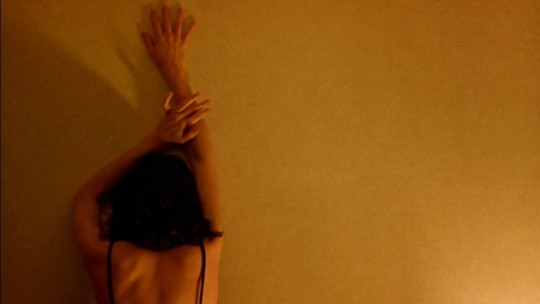
People who commit these acts are in many ways, no different from you and me. But, they are no longer able to control their urges. They disassociate themselves from their own actions also experiencing an hysterical blindness. They're blind to the darkness within themselves.
Jade, William Friedkin (1995)
#William Friedkin#Joe Eszterhas#David Caruso#Linda Fiorentino#Chazz Palminteri#Richard Crenna#Michael Biehn#Donna Murphy#Ken King#Holt McCallany#David Hunt#Angie Everhart#Kevin Tighe#Victor Wong#Andrzej Bartkowiak#James Horner#Augie Hess#1995
3 notes
·
View notes
Text
2020 Year End Compilation
Dune, Frank Herbert
As epic, ground-breaking, and bombastic as advertised. What Tolkien did for fantasy with The Lord of the Rings, Herbert did for sci-fi with this one book. No, I will not be taking questions at this time.
Jonathan Livingston Seagull, Richard Bach
This...is about Buddhism, yes? Or is it about Jesus? No, no...definitely Buddhism.
The Ballad of Black Tom, Victor LaValle
Now this is the kind of cultural appropriation I can get behind! A black reclamation of The Horror at Red Hook, one of Lovecraft’s most atrociously racist stories, it does Cthulhu Mythos cosmic horror better than anyone I’ve read since the Master himself. This might be the perfect horror novella.
Dune Messiah, Frank Herbert
If the first Dune was a symphony, Dune Messiah is a kazoo jingle. This book absolutely killed any enthusiasm I had to continue reading the Dune series. (Plus, that scene where Paul gawks at his naked sister while she trains was super friggin’ creepy, Frank!)
Scoop, Evelyn Waugh
What Catch-22 did for the industrial military complex, Scoop does for sensationalist journalism. (Astute readers, however, will notice that colonialism is the book’s main target.) In context, "LOVELY SPRING WEATHER BUBONIC PLAGUE RAGING" is one of the funniest sentences ever written in the English language.
Lovecraft Country, Matt Ruff
Probably should’ve been a collection of thematically related short stories, as the bits and pieces never quite combine together into a cohesive framing narrative, but those bits and pieces are occasionally extraordinary. The chapter Hippolyta Disturbs the Universe is so good I might punch Matt Ruff if I ever meet him.
The House on the Borderland, William Hope Hodgson
Love me a good astral night flight to the limits of space and sanity! Also, RIP Pepper. You were a very good boy.
A Cook’s Tour, Anthony Bourdain
Kitchen Confidential might have Bourdain’s philosophy, but A Cook’s Tour has his soul. This is Angry Tony, Curious Tony, Compassionate Tony, Bitter Tony, Tony before a decade on the road sanded off his edges, Tony enamored and repulsed by the world he’d always read about and dreamed of (especially Vietnam). This book made me realize all over again just how much I miss him.
The Adventures of Augie March, Saul Bellow
The most exhaustingly erudite and overwritten of all the “Great American Novels” I’ve read. Forget Hemingway—this is what people are making fun of when they talk about pretentious male writers writing stories about men bouncing from bed to bed and woman to woman as they navigate existential crises. The only part I enjoyed was the first chapter about Einhorn, AKA A Portrait of the Grifter as a Great Man.
The Mysterious Stranger, Mark Twain
One of the most superb and effective horror stories I’ve ever read. And it is a horror story. If the folks at The Satanic Temple ever catch wind of it, they might officially adopt it as their holy book.
The Street of Crocodiles, Bruno Schulz
Schulz’s words are an almost one-to-one aesthetic match with Jan Švankmajer’s images. This book is one of the only truly unique and original works of prose I’ve encountered since Joyce’s Ulysses.
Siddhartha, Hermann Hesse
A decent enough primer to South Asian philosophy and religion. Rapidly paced and cleanly written.
Ten Billion Days and One Hundred Billion Nights, Ryū Mitsuse
My copy of this book proclaimed that it was "the GREATEST Japanese science fiction novel of all time." I can't speak to that, but it's easily the most confusing and frustrating (that I've read, anyhow). I mean, if an extra-universal being decided they wanted to wipe out human life on earth, why install a series of religious prophets over thousands of years in order to stoke mankind's self-destructive impulses and not just...kill them all with their space tech/magic? Work smart, not hard, aliens!
The Pisces: A Novel, Melissa Broder
The misanthropy and authorial self-loathing in this book are positively radioactive. Between the E. L. James prose (”My existential c**k”), the blithely sociopathic protagonist (she kills a helpless dog so she can sleep around!), and the queasy contempt for women suffering severe psychological issues (and for people who don’t have them), this book inadvertently reads like an impassioned polemic against sex-positive feminism. Or at least it would if it had any self-awareness. No amount of name-dropping Sappho and other ancient Greek writers can mask how grotesque and selfish the characters are.
A Handful of Dust, Evelyn Waugh
Was Waugh going through a traumatic break-up while writing this one? This book has one of the greatest woe-is-me masochistic downers of a third act in modern English literature.
The Nasty Bits, Anthony Bourdain
I wish I could climb inside those El Bulli and Masa chapters and live there forever—I may never recover from how Tony described his lips as "tumescent" in the presence of truly great sushi. And his short prose story "A Chef's Christmas"? Surprisingly moving. Had me sniffling on the subway.
One Day in the Life of Ivan Denisovich, Aleksandr Solzhenitsyn
Tedium and monotony with devastating purpose and power. Never have bowls of watery gruel sounded so tantalizing.
Botchan, Natsume Sōseki
A fascinating look at turn-of-the-last-century Japan where school teachers aspire towards samurai, iced water is an expensive treat, and...um...might-makes-right military fascism is clearly on the rise. The book valorizes its heroes winning the day by beating the crap out of people physically weaker than them. Yeah...
We Have Always Lived in the Castle, Shirley Jackson
Damn near perfect; the Jackson story I’ve been waiting to read. And for the record, anyone who tries to claim Merricat as some sorta feminist anti-hero for bucking patriarchal domination needs to be reminded that she murdered her whole family and gaslighted her older sister into being her own personal homemaker.
Shopgirl, Steve Martin
A less charming, less interesting companion piece to Martin’s joyous L.A. STORY (1991), it’s nonetheless surprisingly psychologically complex and unexpectedly horny. To its credit, it has the single funniest sex scene I’ve ever read.
Angle of Repose, Wallace Stegner
I feel like admitting that I not just liked but loved this novel is like admitting that I also enjoy watching VHS reruns of golf games from 1986. I can feel myself growing older and smelling of mothballs and Werther's just thinking about it. But this is a marvelous book about family, tragedy, and the long shadow history casts on us all. In its own quiet, understated way, it’s breathtaking.
Babel-17, Samuel R. Delany
I’ve always thought that Delany was better at elucidating interesting ideas than he was in actually telling stories, and this book did nothing to change my mind. The world-building, character portraits, and explorations of the nature of language were fascinating, but the story is clumsily told and it works towards an unsatisfying anti-climax considering the intra-galactic stakes. Still, the scene where Rydra teaches the Butcher the concept of "You” and “I” is one of my favorites I’ve read in any science fiction story in the last several years.
Less, Andrew Sean Greer
Ah, this one snuck up on me. Not as funny as it probably thinks (or hopes) it is, but it’s amusing and pleasingly melancholic. Good comfort reading. That said, there’s no way it deserved the Pulitzer more than Lincoln in the Bardo.
Deliverance, James Dickey
Rugged masculinity won’t save you in the face of uncaring nature because rugged masculinity can’t save you. The rare novel that’s excellent in its own right and somehow raises one’s esteem for its film adaptation in the process as it reveals to you just how much it actually got right.
A Single Man, Christopher Isherwood
More than just a portrait of a psyche, it’s an angry screech at straight 60s America from the perspective of a British transplant who never quite swapped tea for coffee. The last twenty or so pages are divine.
Stand on Zanzibar, John Brunner
Combining the scope of a sprawling sci-fi franchise, Tolkien-esque world-building, and the custom patois of Anthony Burgess, this is one of the single most ambitious novels I’ve ever read. Unfortunately it frazzles out in the last third because Brunner is clearly more interested in the world and characters he’s created than the actual story—the ending reeks of sudden anti-climax. But this is a staggering, truly staggering achievement of imagination.
The Sheltering Sky, Paul Bowles
If Lieutenant D’Armagnac had been the protagonist instead of a supporting character I probably would’ve loved this book instead of just liking it. I found his position as a colonial officer in the waning days of the French Empire much more interesting and conducive to encapsulating the existential ennui and emptiness Bowles was gunning for than the experiences of his American innocents abroad.
The Magus, John Fowles
Headline: “Local Eccentric Billionaire Ruins Charlatan English Teacher’s Life in Name of Experimental Theater”
Shameless: A Sexual Reformation, Nadia Bolz-Weber
If this book was distributed to all American youth groups it would save lives. Literally.
The March, E.L. Doctorow
Though a rich read, it never quite equals the sum of its parts. I wish Doctorow had devoted full novels to Arly and Will, the bumbling Confederate soldiers who keep switching sides as the tides of battle turn, and the medical patient who loses the ability to remember the past after a railroad spike gets lodged in his brain after an explosion. “It’s always now!” is a line that haunts me.
Nostromo, Joseph Conrad
The first couple chapters fooled me into thinking that this book would be more heavily allegorical than the realpolitik examination of South American colonialism that it ended up being. Ah well, my hopes for proto-magical realism were not to be.
The City & the City, China Miéville
Miéville may have tried to write a love letter to classic detective stories, but he wasn’t quite able to match their sense of narrative propulsion. Entire chunks of this book stalled like someone tried to race a car with the parking break on. But the world-building is so stunningly creative and original one could barely care. There were scenes with the Breach that gave me goosebumps.
Cannery Row, John Steinbeck
Who else but Steinbeck could combine such humor, cultural insight, and historical sweep in a series of loose community vignettes essentially about a group of friends throwing a party? (A short passage kvetching about how Americans of a certain generation knew more about Model T-Ford coils than clitorises is one of my favorite reading moments of 2020.) If there weren’t moments of intense sorrow, I’d say it was a breezy, sunny masterpiece of comfort writing. But they’re there, and they elevate the sum total to something truly transcendent.
Spider Kiss, Harlan Ellison
A prescient piece of vindictive nastiness. The fact that Ellison predicted the ur-story of the corrupt rock star’s rise and fall from grace in 1961—before the Beatles, before the Stones, before Elvis became a fat, bloated parody of himself—is a work of prognostication worthy of Nostradamus.
Web of the City, Harlan Ellison
What begins as an unusually vicious street gang story ends as a noirish detective yarn worthy of a place in any pulp connoisseur’s book shelf. Loved the central character’s internal struggle against reverting back to his old violent ways while tracking down his sister’s killer. The scene where he interrogates a junkie by forcing him to go through withdrawal would make Donald Goines queasy.
The Secret Agent, Joseph Conrad
The most accessible Conrad novel I’ve read, and also the most philosophically sophisticated and explicit. His depiction of London as a miasmic cesspool of chaotic randomness was superb, as was his characterizations of Verloc as a self-important coward and the Professor as a delusional psychopath. Furthermore, I loved how he depicted the various levels of the British government and authorities as being constantly at each other’s throats, going over each other’s heads to pursue their own selfish, clandestine goals at the expense of the other.
The Cosmic Puppets, Philip K. Dick
On the surface, this appears to be one of Dick’s most mindlessly silly and entertaining books—it feels at times like a juvenile Stephen King doing his best Roger Zelazny impression, particularly the scenes where the good god's army of cats and bees fights the evil god’s army of spiders and clay golems. But a closer look reveals one of the more melancholy and desperate works of schizo-fi in Dick’s whole canon. It’s heartbreaking to think of him pounding away on this novel high on meth in his closet, convinced that if he just tries hard enough he can wipe away the false reality around him like Ted Barton does the mirage that’s replaced his hometown.
Down and Out in Paris and London, George Orwell
A startling gallery of gutter grotesques. The London chapters were compelling in their own right, but they didn’t hold a candle to the sequences examining the Parisian hotel industry. I actually sought out this book out because it was one of Anthony Bourdain’s favorites, and it’s easy to see why: it combines a stunningly realized sense of place with a worm’s eye view of French bistro cooking. Despite being uniformly enraging and revolting, it made me want nothing more than a nice French dinner once I got out of quarantine
The World Jones Made, Philip K. Dick
This really should’ve been two books instead of one: one about the precog dictator and another about the custom-bred human Venusians. Both are fodder for fascinating stories, but together they just don’t work. I also would’ve appreciated a deeper look into Relativism—it’s the most interesting philosophical/religious movement in a Dick novel since Mercerism. That said, there are inspired passages, particularly the ones explaining how the precog witnessed his own birth and death a year before either happened.
The Voyage of the Space Beagle, A. E. van Vogt
If a certain Jacob Kurtzberg had gotten his hands on this book at some point, it wouldn’t surprise me, as it does more than just predict Star Trek, it predicts a lot of what would come to be known as “Cosmic Marvel.” (What is Galactus if not a combination of Ixtl and Anabis?) You can definitely tell it’s a fix-up novel, which isn’t necessarily a sin, but van Vogt fumbles the trying together of the disparate parts into a cohesive whole. All the internal ship politics stuff struggled to keep my attention. But the creature encounters struck the perfect blend of pulpy violence and hard science technobabble.
Timequake, Kurt Vonnegut
A messy, unfocused, scattershot, self-indulgent bouillabaisse of half-cocked philosophy, masturbatory metafiction, half-remembered personal anecdotes, and crackpot sci-fi. It’s also one of the most poetic and heartbreaking autobiographies I’ve ever read. All hail Vonnegut, the Great American Cynic with a heart of gold and a pocketful of Pall Malls.
Martian Time-Slip, Philip K. Dick
Though obviously based in no kind of real-world science, the idea that autistic people experience time differently from others and that they might one day be controlled as living, breathing time machines is one of Dick’s best. And in another way, one of his most tragic in that it imagines a future where disabled people have to be commodified as something useful to industry and the economy to be deemed worthy to exist. The book’s plot is a bit too complicated for its own good, but I like the narrative ambition on display.
Dandelion Wine, Ray Bradbury
Never you mind that I didn’t grow up in late 20s Illinois: this book is the story of my childhood, much as I suspect it’s the story of everyone’s childhood who reads it. This might be the most poetically melancholic book I’ve ever read, and I don’t say that lightly. Every page or so I’d come across a line or passage that was so beautiful it’d make my heart hurt. The prose itself feels oddly reminiscent of Bruno Schulz, or at the very least reminiscent of how Schulz synthesized his memories into fantastic fables. But whereas the Poland of Schulz’s youth was strange, alien, and foreign, the America of Bradbury’s youth is comforting, familiar, and oddly timeless. An American masterpiece.
The Sky is Falling, Lester del Rey
I can’t believe del Rey invented isekai anime in 1954. What a visionary!
Culinary Reactions: The Everyday Chemistry of Cooking, Simon Quellen Field
Did you know that, scientifically speaking, cakes are foams??
Never Let Me Go, Kazuo Ishiguro
Punishingly sad and lovely. Its sci-fi setting is incidental to Ishiguro’s explorations of grief, guilt, and jealousy.
The Door into Summer, Robert A. Heinlein
Reading this book is a powerful reminder that Heinlein was one of the best and most imaginative storytellers in all of science fiction...and one of the grossest when it came to issues of personal freedom and sexuality. I wonder if he ever realized that his libertarian politics were borderline Randian Objectivist and his sexual obsessions almost pedophilic? And if he did know, did he care?
Movies are Prayers, Josh Larsen
No book has made me more excited about the possibilities of film criticism as an art since I first discovered Roger Ebert’s Great Movies collections. Superb.
Henderson the Rain King, Saul Bellow
Gah...it would be the literal White-Savior-in-Darkest-Africa book that would end up being the only Bellow I sorta liked. But what can I say? I found Henderson’s spiritual yearning intensely relatable. And that scene at the beginning where he tries to rediscover a quotation about forgiveness by rooting through his father’s books, emptying the dollar bills he used as bookmarks onto the floor in the process, will stay with me for a long time.
Reflections on the Psalms, C. S. Lewis
Lewis just couldn’t help himself, eh? Even in a consideration of the Psalms he veers off-subject to espouse on Christian apologetics for half the book. Ah well, his insights into the Psalms themselves are worth the read, even if his ramblings on Christianity aren’t as structured or interesting as they are elsewhere.
Under the Volcano, Malcolm Lowry
Overwritten and—forgive the pun considering this is a book about an alcoholic—dry. With its multiple layers of symbolism, stream of consciousness narration, shifting POVs, and the niggling sense it gives off that on at least some level the book was written to show off the extent of its author’s intelligence (and the vastness of their reference library) it reminded me a good deal of Joyce. Unfortunately it had none of the Irishman’s humor or levity. At the very least it’s given me an excuse to revisit the John Huston movie.
Song of Solomon and Beloved, Toni Morrison
Read these two books of trauma and freedom—one a folk tale, the other a ghost story—back-to-back. Afterwards I went for a long, long walk in Prospect Park, watching and loving, truly loving, all the trees, animals, and people I saw.
Pictures at a Revolution, Mark Harris
What truly sets this book apart from other excellent and scrupulously researched film history books is that it’s “plotted” and written like a heist novel. On the one side you have New Hollywood mavericks striving to sneak things past censors and foolhardy producers and on the other you have Old Hollywood fossils flailing about and trying to mitigate the fallout of disastrous or ill-advised boondoggles like Doctor Doolittle (1967). One of the few history books I’ve read in the last few years that could be called legitimately entertaining.
In Cold Blood, Truman Capote
You can’t put words—let alone thoughts and dreams—into the mouths of historical figures and still call your book nonfiction. This is an intensely researched bit of true crime historical fiction. And in that respect, it’s one of the best I’ve ever read.
Welcome to the Monkey House, Kurt Vonnegut
A hit-or-miss mix of Vonnegut’s trademark philosophical sci-fi and more languid melodramas written for women’s magazines. The highlights: “Harrison Bergeron” is Ellison-esque; “Who Am I This Time?” is heart-warming; “All the King’s Horses” is ingenious; “D.P” and “The Manned Missiles” are exquisitely sad; “The Euphio Question” is hilarious; the title story should’ve never left Vonnegut’s typewriter.
Sula, Toni Morrison
The curious story of an anti-Christ, a savior who unites a community through hating her instead of through loving each other. Morrison creates an odd moral vacuum in which her titular character exists, allowing her to thumb her nose at all manner of social conventions and manners and be beatified for it. Also, I wish Shadrack was a more central character.
The Three Stigmata of Palmer Eldritch, Philip K. Dick
My, this was a curious one. The more I tried to follow what was “happening” the more confused I got. The less I tried to follow it, the more I understood. Not sure if these are good or bad things.
Sailing to Byzantium, Robert Silverberg
I am so, so thankful that Silverberg never tried to explain exactly how the people of the 50th century reconstructed long-dead cities nearly overnight; that would’ve made this hard sci-fi instead of fantasy sci-fi. And with that change it would’ve probably lost much of its wistfulness, its melancholy, and its beauty. What a sublime novella!
What We Talk About When We Talk About Anne Frank, Nathan Englander
The stories here range from alright to superb (the title story packs quite the last paragraph wallop), but the two best—"Sister Hills" and "Camp Sundown"—are marvelous explorations of how past tyrannies and atrocities continue to infect and curdle lingering and current generations of Jews. However, I doubt that Englander’s tendency to shrug off Jewish abuses of Palestinians in Israel will do much to endear this collection in the decades to come.
The Boat Rocker, Ha Jin
It’s eerie how much this book correctly predicted Mainland China’s takeover of the world media and news apparatus. Here is a book that understands that, unlike in most Western fiction, the more outrageous and surreal things get in Chinese life, the more realistic and grounded they are. I kept expecting the book’s stakes to explode into something reminiscent of spy thrillers, but despite working with an eye for the movements of entire civilizations and countries, Jin keeps them small and intimate enough that they never feel exaggerated.
Fried Green Tomatoes at the Whistle Stop Cafe, Fannie Flagg
Idealized but never, never sanitized, Flagg’s vision of early twentieth century Alabama is one of the coziest depictions of the American South I’ve ever read, gentle, melancholy, and warm. Flagg’s choice to tell much of it in flashback creates a necessary distancing from the brutal realities of the period, from the Klan to socially-accepted spousal abuse. There’s a glow to this book and its characters that I found irresistible.
The Heart of the Matter, Graham Greene
This is the third of Greene’s novels I’ve read, but the first of his more deliberately “Catholic” novels. It took me some time to figure out whether or not I was enjoying it. I think I can finally say that, yes, I did enjoy the book, as I found Henry Scobie’s slow, pointless self-destruction profoundly tragic. But compared to some of the other Catholic (and British Anglican) novelists I love, I found it a bit too maudlin for me to ever care to revisit.
Letters from Atlantis, Robert Silverberg
Another beautiful and melancholy time travel novella from Silverberg. Here Silverberg finds purpose and meaning in a quasi-Vonnegut nihilism that I found quite lovely.
Swamplandia!, Karen Russell
This book was so close to becoming a personal favorite of mine. I loved everything about the world and characters Russell created and rejoiced over her vision of a mythical Florida that could rival the Old West and Puritan New England as a setting for American legends. But then it suffers from one of the most astonishing losses of nerve I’ve ever encountered in any book as Russell decides in the last 50 or so pages that, no, Florida’s swamps aren’t haunted, there are no ghosts, and there is no magic. Instead, the swamps are populated only by hunters, the homeless, and child molestors like the Birdman who, after Russell spends about 100 pages building up as this mysterious Everglades psychopomp, unceremoniously rapes the 13-year-old protagonist. Maybe Russell was trying to say something about the realities of grief and loss in the face of the fictions the grieving construct for themselves, but her method was so shocking, so needlessly hateful that it scuttled all the collected goodwill I had for the book.
Interpreter of Maladies, Jhumpa Lahiri
So here’s a funny thing, but I actually read the last of the stories in this book—The Third and Final Continent—in high school AP English alongside a number of other shorts by a wide variety of international authors. I remember thinking Continent was the most placid and boring of all the stories I read, yet it’s the only one of them I can remember almost thirteen years later. I suppose there’s a power that gently hums beneath Lahiri’s tranquil, plain prose, as the other stories in this book were similarly staid yet engrossing. I wonder if I’ll remember the rest of them in thirteen years?
The Fox Was Ever the Hunter, Herta Müller
Man, am I glad I stuck with this one. I almost gave it up after reading the first half which was comprised largely of seemingly unrelated vignettes and images. But these eventually coalesced into a suffocating depiction of life under a late Communist regime, and Müller’s recounting of its downfall in the last act was fantastic and harrowing.
Einstein’s Dreams, Alan Lightman
Found this one oddly boring. Once the novelty of its concept wore off, I found myself wishing there was a stronger thematic follow-through and a better structure than its meager interludes. Maybe if the alternative dimensions had been grouped in certain orders? From the most normal to the most bizarre? From the most comedic to the most tragic?
The Chalk Man, C. J. Tudor
In case there was any need for proof that Stephen King is a class act, it’s that when he was handed a copy of The Chalk Man he gave it an enthusiastic recommendation quote instead of immediately suing C. J. Tudor for plagiarism. The Chalk Man is basically It set in modern England with ideas and entire scenes (like the disastrous coffin incident at a funeral from Salem’s Lot) taken from his other books. All of which would be more tolerable if the book itself was interesting, but it’s such an uneven hodgepodge of ideas and inconsistencies—so wait, were the main character’s prophetic dreams real or not?!—that it’s difficult to see beyond its influences.
Howards End, E. M. Forster
I enjoyed this much more than A Room With a View, possibly because I found it much more cynical and sinister in its depictions of class relations and bourgeois selfishness, and possibly because I found myself sympathizing with Leonard Bast and his plight more than I usually do characters from this era of English literature.
Vulcan’s Hammer, Philip K. Dick
Dick beats John Brunner to the Shalmaneser punch almost a decade early in this book. But in Dick’s Gnostic worldview, any being that can know everything is a god, and any god that isn’t God is inherently evil and must therefore be destroyed. Lest this sound overly esoteric, one should know that the book is actually one of Dick’s most lucid and propulsive with a third act that’s one of the most exciting he ever wrote. It also helps that the world of Vulcan’s Hammer is one of his most insidiously terrifying even before the not-God begins its reign of terror. Nowhere is this better demonstrated than in an early scene where a class of schoolchildren are tricked via a simple game into revealing the identity of one of their classmates who spoke out against the world government so she can be taken away by the authorities.
Runaway, Alice Munro
Man…women can’t win for losing, huh? Beautifully sad stories made even sadder by Munro deliberately setting them in environments either hostile towards or absent of faith.
Podkayne of Mars, Robert A. Heinlein
I’m not surprised at all that Heinlein originally intended for Podkayne to die and for her brother Clark to live: in Heinlein’s philosophy, as the smartest, cleverest, and most self-sufficient, Clark was obviously the real hero of the novel. (Likewise, his superiority not only forgave his cruelty and selfishness, it transformed them into virtues.) Still, the book is one of Heinlein’s most entertaining adventures, even more than most of the Scribner's juveniles he deliberately wrote for young readers. I just wish, to paraphrase John W. Campbell, he’d written it without his other hand “in his pocket.”
Death Is a Lonely Business, Ray Bradbury
Like the very best pulp detective stories by Chandler, Hammett, or Cain, this book is more concerned with creating a surreal, oneiric sense of atmosphere and place accentuated by desperation, melancholy, and sadness than it is in telling a cohesive story where all the narrative odds and ends come full circle. Bradbury’s nixing of the genre’s nihilism in favor of an optimistic climax suffused with joie de vivre was a masterstroke.
The Halloween Tree, Ray Bradbury
Delightful. We need more stories about rambunctious schoolboys being scared silly.
We Can Build You, Philip K. Dick
I guess we should be thankful that when Dick’s early literary aspirations collapsed he turned to sci-fi to pay the bills, not romance. Yeesh…
Farewell Summer, Ray Bradbury
Pretty but slight. Bradbury’s editors were probably right to cut it from Dandelion Wine. Liked the bit about the magical traveling erections though. You need to be a guy to understand.
Tar Baby, Toni Morrison
In the movie of this book that exists in my head, the Streets are played by Guess Who’s Coming to Dinner-era Spencer Tracy and Katharine Hepburn, Son is Daniel Kaluuya, and Jadine is Lupita Nyong’o. Also in this movie, the entire book takes place in the mansion on the island, because the novel seems to lose its focus slightly whenever it takes diversions to New York or Florida. It was fascinating to see Morrison really dive into the psychology of white characters for a change, and the scene where Margaret’s abuse is revealed is one of the finest of her career.
Southern Reach Trilogy, Jeff VanderMeer
The first book in the trilogy, Annihilation, is like Lovecraft meets Solaris, gothic horror meets sci-fi. (Imagine my surprise to learn that the superb Alex Garland adaptation essentially transformed it into a slasher!) It broke my heart to find that the two sequels were subpar at best, with the second book Authority being particularly dull. I can’t believe VanderMeer thought we’d be more interested in this “Control” schmuck than Area X. If Annihilation was a brilliant innovation on Lovecraft, this book is like a microwaved Stephen King pastiche. The third book Acceptance is better, but mostly because of the chapters devoted to Saul, the future Crawler. To be honest, I wish VanderMeer had skipped writing the two sequels and instead released the Saul passages as a stand-alone prequel short story.
The Three-Body Problem, Liu Cixin
There’s something intensely melancholy about Cixin’s vision of Trisolaris as a place of perpetual societal birth, death, and rebirth that’s reminiscent of the sad sweep of rising and falling civilizations in Asimov’s Foundation series. That said, despite the occasionally opaque technobabble, I found this book much more readable and enjoyable than that esteemed series.
Underworld, Don DeLillo
What is this sprawling, disparate doorstop of a novel about? Well, it’s essentially “about” the essential interconnectivity of all things through decay. I’m not 100% sure DeLillo’s panoptical pointillism worked as he entirely intended, but whenever I found myself exhausted by his logorrhea he’d hit me with a passage so stunning and breathtaking it renewed my interest in the whole shebang. Good writing, here.
1 note
·
View note
Text
25/03/2016
The Woman in the Dunes, Kobo Abe
Things Fall Apart, Chinua Achebe
The Jolly Postman or Other Peoples Letters, Janet & Allan Ahlberg
The Wolves Of Willoughby Chase, Joan Aiken
The Wanderer, Alain-Fournier
Commedia, Dante Alighieri
Skellig, David Almond
The President, Miguel Angel Asturias
Alcools, Guillaume Apollinaire
It's Not About The Bike - My Journey Back to Life, Lance Armstrong
Behind The Scenes At The Museum, Kate Atkinson
The Handmaid's Tale, Margaret Atwood
Jonathan Livingstone Seagull, Richard Bach
Go Tell It on the Mountain, James Baldwin
The Ghost Road, Pat Barker
Carrie's War, Nina Bawden
Molloy; Malone Dies; The Unnamable, Samuel Beckett
Waiting for Godot, Samuel Beckett
The Adventures of Augie March, Saul Bellow
G, John Berger
Noughts And Crosses, Malorie Blackman
Mister Magnolia, Quentin Blake
Forever, Judy Blume
The Magic Faraway Tree, Enid Blyton
Five On A Treasure Island, Enid Blyton
The Enchanted Wood, Enid Blyton
A Bear Called Paddington, Michael Bond
Ficciones, Jorge Luis Borges
The Boy In The Striped Pyjamas, John Boyne
The Snowman, Raymond Briggs
Flat Stanley, Jeff Brown
Gorilla, Anthony Browne
The Good Earth, Pearl S. Buck
The Pilgrim's Progress, John Bunyan
A Clockwork Orange, Anthony Burgess
Junk, Melvin Burgess
Would You Rather?, John Burningham
The Soft Machine, William S. Burroughs
The Way of All Flesh, Samuel Butler
Possession, A.S. Byatt
The Princess Diaries, Meg Cabot
If on a Winter's Night a Traveler, Italo Calvino
Invisible Cities, Italo Calvino
The Stranger, Albert Camus
Oscar and Lucinda, Peter Carey
Nights at the Circus, Angela Carter
Looking For JJ, Anne Cassidy
Journey to the End of the Night, Louis-Ferdinand Céline
Wild Swans: Three Daughters of China, Jung Chang
Papillon, Henri Charriere
The Canterbury Tales, Geoffrey Chaucer
"Clarice Bean, That's Me", Lauren Child
I Will Not Ever Never Eat a Tomato, Lauren Child
Les Liaisons Dangereuses, Pierre Choderlos de Laclos
Disgrace, J.M. Coetzee
Waiting for the Barbarians, J.M Coetzee
Princess Smartypants, Babette Cole
Nostromo, Joseph Conrad
The Public Burning, Robert Coover
Millions, Frank Cottrell Boyce
The Power Of One, Bryce Courtenay
That Rabbit Belongs To Emily Brown, Cressida Cowell
House Of Leaves, Mark Z. Danielewski
The Black Sheep, Honoré de Balzac
Old Man Goriot, Honoré de Balzac
The Second Sex, Simone de Beavoir
The Story of Babar, Jean De Brunhoff
The Little Prince, Antoine De Saint-Exupery
White Noise, Don DeLillo
Slouching Towards Bethlehem, Joan Didion
Sybil, Benjamin Disraeli
Hairy Maclary from Donaldson's Dairy, Lynley Dodd
The 42nd Parallel, John Dos Passos
The Brothers Karamzov, Fyodor Dostoevsky
An American Tragedy, Theodore Drieser
The Name Of The Rose, Umberto Eco
My Naughty Little Sister, Dorothy Edwards
Invisible Man, Ralph Ellison
The Horse Whisperer, Nicholas Evans
The Siege of Krishnapur, J.G Farrell
The Sound and the Fury, William Faulkner
"Absalom, Absalom!", William Faulkner
Light in August, William Faulkner
Take it or Leave It, Raymond Federman
Magician, Raymond E. Feist
Flour Babies, Anne Fine
Madam Bovary, Gustav Flaubert
A Passage to India, E. M. Forster
The Diary of a Young Girl, Anne Frank
Cross Stitch, Diana Gabaldon
That Awful Mess on the Via Merulala, Carlo Emilio Gadda
JR, William Gaddis
The Graveyard Book, Neil Gaiman
One Hundred Years Of Solitude, Gabriel García Márquez
Love In The Time Of Cholera, Gabriel García Márquez
Maggot Moon, Sally Gardner
The Owl Service, Alan Garner
In the Heart of the Heart of the Country & Other Stories, William H. Gass
Coram Boy, Jamila Gavin
Once, Morris Gleitzman
The Conservationist, Nadine Gordimer
Asterix The Gaul, Rene Goscinny
The Tin Drum, Günter Grass
Sunset Song, Lewis Grassic Gibbon
Little Mouse's Big Book of Fears, Emily Gravett
Lanark, Alasdair Gray
The Quiet American, Graham Greene
Life and Fate, Vasily Grossman
The Curious Incident Of The Dog In The Night-Time, Mark Haddon
Jude The Obscure, Thomas Hardy
The Scarlet Letter, Nathaniel Hawthorne
Stranger in a Strange Land, Robert A. Heinlein
The Sun Also Rises, Ernest Hemingway
For Whom the Bell Tolls, Ernest Hemingway
The Old Man And The Sea, Ernest Hemingway
The Blue Lotus, Hergé
The Adventures Of Tintin, Hergé
The Glass Bead Game, Herman Hesse
Where's Spot?, Eric Hill
The Secret Garden, Frances Hodgson Burnett
The Odyssey, Homer
High Fidelity, Nick Hornby
Point Blanc, Anthony Horowitz
Skeleton Key, Anthony Horowitz
Dogger, Shirley Hughes
Journey To The River Sea, Eva Ibbotson
Little House In The Big Woods, Laura Ingalls Wilder
A Prayer For Owen Meany, John Irving
Goodbye to Berlin, Christopher Isherwood
The Portrait of a Lady, Henry James
The Ambassadors, Henry James
Finn Family Moomintroll, Tove Jansson
Lost and Found, Oliver Jeffers
The Far Pavilions, M. M. Kaye
A Confederacy of Dunces, John Kennedy Toole
The Tiger Who Came To Tea, Judith Kerr
One Flew Over The Cuckoo's Nest, Ken Kesey
In Praise of Hatred, Khaled Khalifa
Gate of the Sun, Elias Khoury
It, Stephen King
The Queen's Nose, Dick King-Smith
The Sheep-Pig, Dick King-Smith
Diary Of A Wimpy Kid, Jeff Kinney
Kim, Rudyard Kipling
I Want My Hat Back, Jon Klassen
Darkness at Noon, Arthur Koestler
The Unbearable Lightness of Being, Milan Kundera
The Milly-Molly-Mandy Storybook, Joyce Lankerster Brisley
Women in Love, D.H. Lawrence
Seven Pillars of Wisdom, T.E Lawrence
A Wrinkle in Time, Madeleine L'Engle
The Golden Notebook, Doris Lessing
Tristes Tropiques, Claude Lévi-Strauss
Pippi Longstocking, Astrid Lindgren
The Call of the Wild, Jack London
Nightmare Abbey, Thomas Love Peacock
Under the Volcano, Malcolm Lowry
The Good Soldier, Ford Madox Ford
The Cairo Trilogy, Naguib Mahfouz
The Naked and the Dead, Norman Mailer
Man's Fate, Andre Malraux
The Magic Mountain, Thomas Mann
Wolf Hall, Hilary Mantel
The Road, Cormac McCarthy
The Kite Rider, Geraldine McCaughrean
The Heart Is A Lonely Hunter, Carson McCullers
"Not Now, Bernard", David McKee
Tent Boxing: An Australian Journey, Wayne McLennan
No One Sleeps in Alexandria, Ibrahim Abdel Meguid
A Fine Balance, Rohinton Mistry
The Cruel Sea, Nicholas Monsarrat
Private Peaceful, Michael Morpurgo
Beloved, Toni Morrison
Song of Solomon, Toni Morrison
The Wind-Up Bird Chronicle, Haruki Murakami
Under the Net, Iris Murdoch
The Worst Witch, Jill Murphy
Pale Fire, Vladimir Nabokov
A Bend in the River, V.S Naipaul
Their Eyes Were Watching God, Zora Neale Hurston
A Monster Calls, Patrick Ness
The Knife Of Never Letting Go, Patrick Ness
The Borrowers, Mary Norton
Master And Commander, Patrick O'Brian
The Silent Cry, Kenzaburo Oe
My Name is Red, Orhan Pamuk
Gormenghast, Mervyn Peake
Night Watch, Terry Pratchett
The Colour Of Magic, Terry Pratchett
The Truth, Terry Pratchett
Witches Abroad, Terry Pratchett
Truckers, Terry Pratchett
Life: An Exploded Diagram, Mal Prett
Paroles, Jacques Prévert
The Shipping News, Annie Proulx
In Search of Lost Time, Marcel Proust
The Ruby In The Smoke, Philip Pullman
Eugene Onegin, Alexander Pushkin
Gravity's Rainbow, Thomas Pynchon
Live and Remember, Valentin Rasputin
Witch Child, Celia Rees
Mortal Engines, Philip Reeve
Clarissa: Or the History of a Young Lady, Samuel Richardson
How I Live Now, Meg Rosoff
I Want My Potty!, Tony Ross
Portnoy's Complaint, Philip Roth
The God Of Small Things, Arundhati Roy
Midnight's Children, Salman Rushdie
Holes, Louis Sachar
Blindness, Jose Saramango
Being and Nothingness, Jean-Paul Sartre
Nausea, Jean-Paul Sartre
Austerlitz, W.G. Sebald
Revolver, Marcus Sedgwick
Where The Wild Things Are, Maurice Sendak
The Silver Sword, Ian Serraillier
Katherine, Anya Seton
Come over to My House, Dr Seuss
Daisy-Head Mayzie, Dr Seuss
Great Day for Up!, Dr Seuss
Hooray for Diffendoofer Day!, Dr Seuss
Horton and the Kwuggerbug and More Lost Stories, Dr Seuss
Hunches in Bunches, Dr Seuss
I Am NOT Going to Get Up Today!, Dr Seuss
I Can Lick 30 Tigers Today! and Other Stories, Dr Seuss
I Had Trouble in Getting to Solla Sollew, Dr Seuss
My Book about ME, Dr Seuss
My Many Colored Days, Dr Seuss
"Oh, the Thinks You Can Think!", Dr Seuss
On Beyond Zebra!, Dr Seuss
The Bippolo Seed and Other Lost Stories, Dr Seuss
The Butter Battle Book, Dr Seuss
The Cat's Quizzer, Dr Seuss
The Pocket Book of Boners, Dr Seuss
The Seven Lady Godivas, Dr Seuss
The Shape of Me and Other Stuff, Dr Seuss
What Pet Should I Get?, Dr Seuss
You're Only Old Once!, Dr Seuss
Dr Seuss's Book of Bedtime Stories, Dr Seuss
Special shapes: A flip-the-flap book, Dr Seuss
Dizzy days: A flip-the-flap book, Dr Seuss
The Tale of Genji, Murasaki Shikibu
A Town Like Alice, Nevil Shute
I Capture The Castle, Dodie Smith
"The Gulag Archipelago, 1918-1956: An Experiment in Literary Investigation", Aleksandr Solzhenitsyn
Memento Mori, Muriel Spark
The Prime of Miss Jean Brodie, Muriel Spark
Heidi, Johanna Spyri
The Making of Americans, Gertrude Stein
The Charterhouse of Parma, Stendhal
"The Life and Opinions of Tristram Shandy, Gentleman", Laurence Sterne
Driving Over Lemons: An Optimist in Andalucia, Chris Stewart
Goosebumps, R.L. Stine
Ballet Shoes, Noel Streatfeild
The Home and the World, Rabindranath Tagore
The Arrival, Shaun Tan
The Secret History, Donna Tartt
The Ragged Trousered Philanthropists, Robert Tressell
Fathers and Sons, Ivan Turgenev
Adventures of Huckleberry Finn, Mark Twain
Froth on the Daydream, Boris Vian
Creation, Gore Vidal
Slaughterhouse-Five, Kurt Vonnegut
Breakfast of Champions, Kurt Vonnegut
The Color Purple, Alice Walker
Scoop, Evelyn Waugh
The War Of The Worlds, H.G. Wells
The Time Machine, H.G Wells
The Once And Future King, T.H. White
Double Act, Jacqueline Wilson
Vicky Angel, Jacqueline Wilson
Girls In Love, Jacqueline Wilson
The Illustrated Mum, Jacqueline Wilson
The Dare Game, Jacqueline Wilson
Bad Girls, Jacqueline Wilson
Lola Rose, Jacqueline Wilson
Girls In Tears, Jacqueline Wilson
Sleepovers, Jacqueline Wilson
Secrets, Jacqueline Wilson
Girls Out Late, Jacqueline Wilson
Dustbin Baby, Jacqueline Wilson
The Code of the Woosters, P.G. Wodehouse
Native Son, Richard Wright
Going Native, Stephen Wright
The Day Of The Triffids, John Wyndham
The Dream of the Red Chamber, Cao Xueqin
Red Sorghum: A Novel of China, Mo Yan
Revolutionary Road, Richard Yates
We, Yevgeny Zamyatin
Germinal, Emile Zola
Amazing Grace, Mary Hoffman & Caroline Binch
Horrid Henry, Francesca Simon & Tony Ross
Meg And Mog, Helen Nicholls & Jan Pienkowski
Ten Little Fingers and Ten Little Toes, Mem Fox & Helen Oxenbury
The Elephant And The Bad Baby, Elfrida Vipont & Raymond Briggs
The True Story Of The Three Little Pigs, Jon Scieszka & Lane Smith
4 notes
·
View notes
Photo
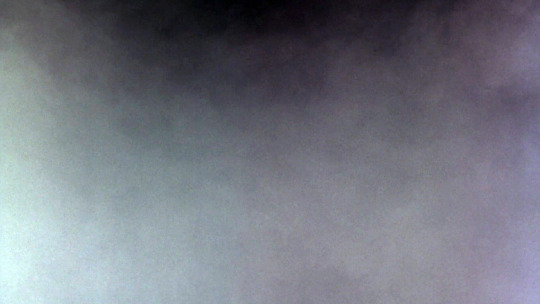

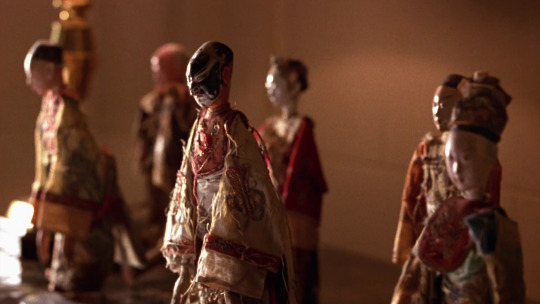
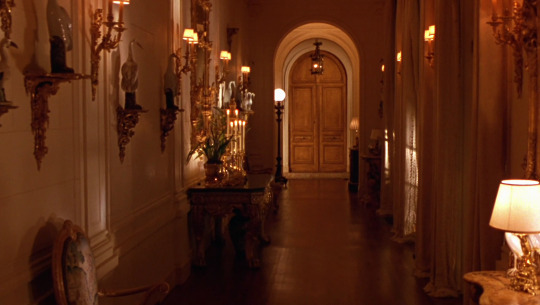
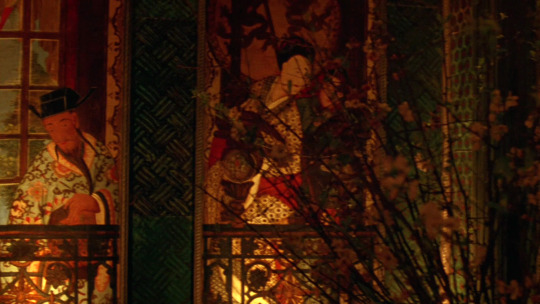
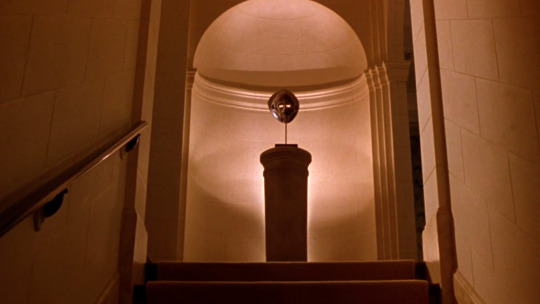
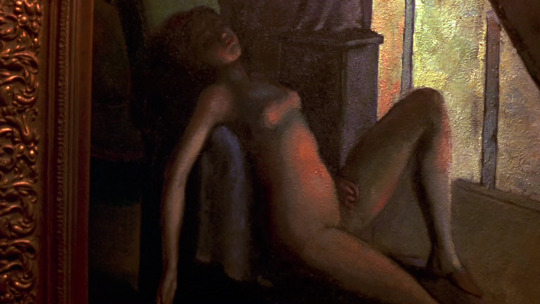
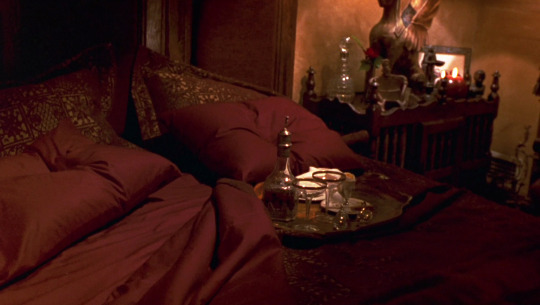

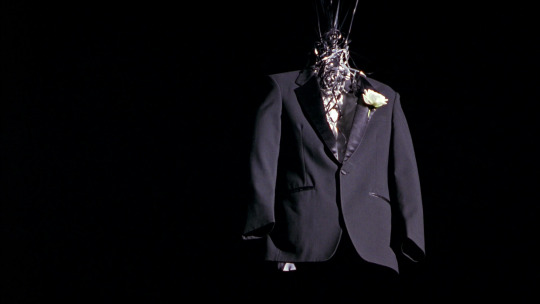
Jade (William Friedkin, 1995).
#jade (1995)#william friedkin#andrzej bartkowiak#Augie Hess#alex tavoularis#charles william breen#jade#joe eszterhas#robert evans#sesión de madrugada#sesiondemadrugada#movie stills#movie frames#diego salgado
9 notes
·
View notes